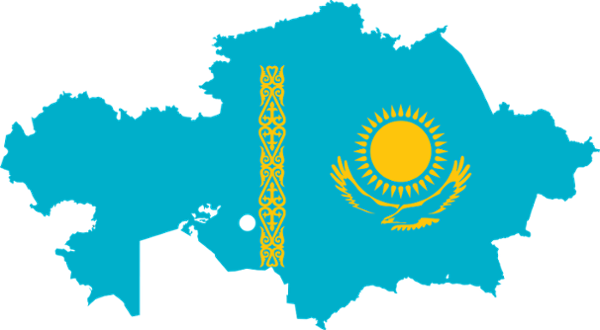The economic and geopolitical situations of Kazakhstan’s key trading partners (Russia and China) can serve to severely hamper the economy, as seen in the contemporary. The dire economic situation currently enduring in Russia, has direct repercussions for Kazakhstan, with the IMF estimating that a 1% lower growth in Russia reduces Kazakhstan’s growth by 0.1%-0.2% as a result of lower trade and FDI. With the Russian economy contracting and the ruble (RUB) decrepitating against the tenge, exports to Russia have been affected. According to the OECD, the Kazakhstan’s economy could be further harmed if Russian banks have to reduce their activities as a result of further sanctions. Russian banks in total account for about 9% of banks assets in Kazakhstan. The exposure of the Kazakhstan economy to Russia, is further exacerbated by official economic ties in the form of the Eurasian Economic Union (EEU), a free trading zone that also includes Armenai, Belarus and Kyrgyzstan. Although the agreement has the potential to boost regional trade between the countries, the membership makes hedging contagion from Russia more difficult as internal trade barriers between the countries are lifted. For example, ruble depreciation, and the resulting cheaper imports has put companies in Kazakhstan under pressure, especially those of the non-oil industry such as producers of motor vehicles and food products. Imports from Russia however have not been restricted on the wider scale.

Trade with Kazakhstan’s other main trading partner China is flourishing with non-oil exports expanding by around 20% per annum. Traditionally, Chinese growth has played a role of real importance in sustaining high prices for primary exports. However, the slowdown of the Chinese economy, growth and thus demand for natural resources has resulted in lower export growth to the country. Lastly, geopolitical tensions between Russia and the West poses a challenge to export growth especially for non-oil goods. Over 50% of Kazakhstan’s exports are sold to the Europe Union, most of which pass through Russia as a key supply route. These trades are likely to be disrupted by trade disputes between Russia and the EU, with checks at the border leading to long waiting times and other complications.
DEMOGRAPHICS
The country faces in many ways a unique demographic situation, which is likely to pose a challenge in the medium term. Kazakhstan’s dependency ratio is expected to rise from 46% to between 55%-60% by 2020, and remain at high levels for a significant period of time. This is as a result of the population movements of the 1990’s, during which time smaller cohorts of people were born. These smaller cohorts will arrive on the labour market at the same time as the baby boom generation post-WWII enters retirement, thus increasing the dependency ratios. This demographic scenario will increase the budget deficit, through increased welfare and health sector spending.
CORRUPTION
Despite the privatization of the Kazakhstan economy from 1991, public and state-owned entities still account for 30% - 40% of GDP at present, with the rest of the economic clout concentrated among a small number of private actors. This constrains investment and dynamism in the economy, with investment into Kazakhstan being lower than comparable countries at 23% of GDP. Strong price controls in a number of markets, discretionary intervention by state actors and restricted competition in key markets results in distorted price signals and limited opportunities for new entry. Corruption and perceptions of corruption, affecting multiple state functions have had a negative impact on doing business in the country. Government has taken on new anticorruption measures; however, the challenge remains significant.






